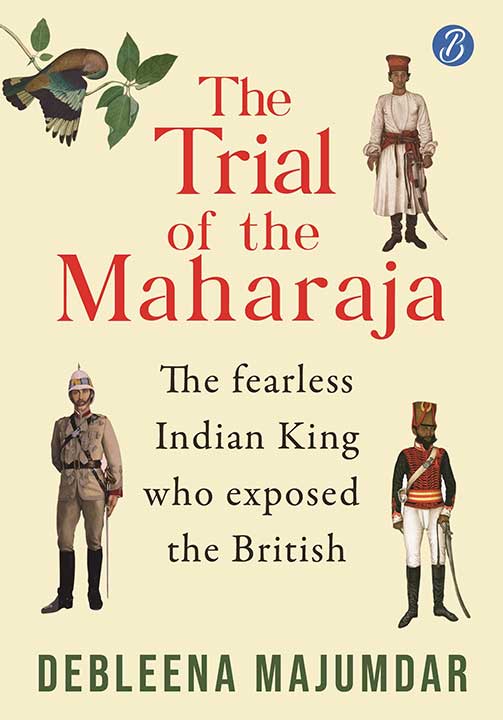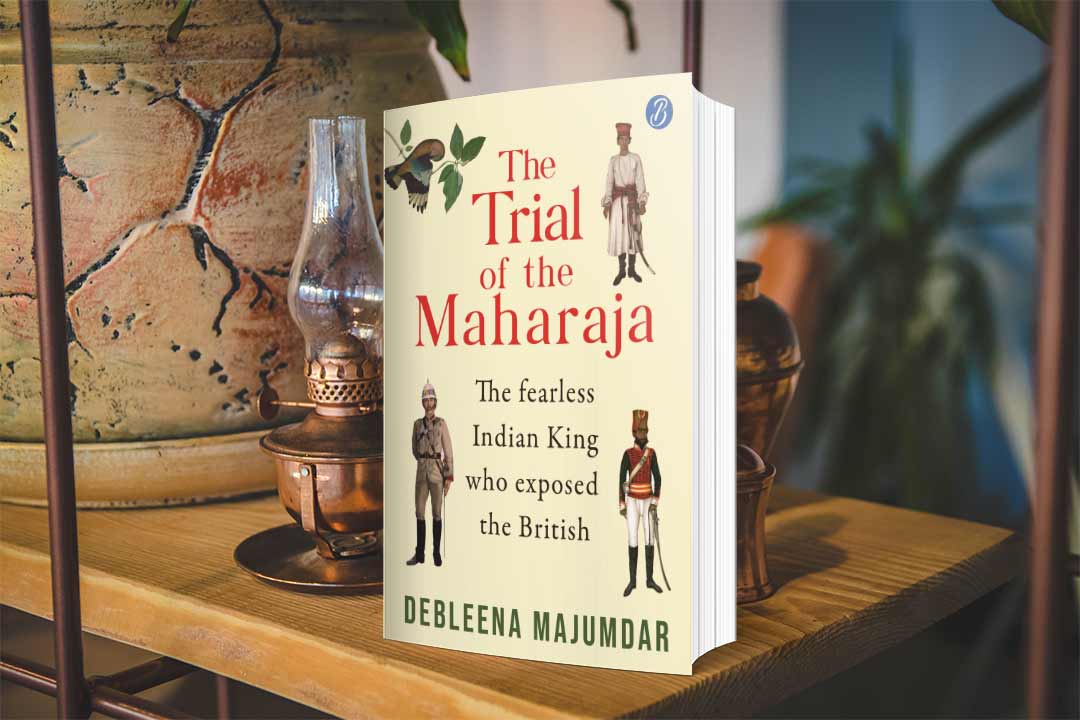Title: The Trial of the Maharaja
Author: Debleena Majumdar
Publisher: Srishti Publishers & Distributors
Genre: True accounts, Crime, History
First Publication: 2022
Language: English
Book Summary: The Trial of the Maharaja by Debleena Majumdar
The true account of the first Judicial Murder in British India 1775: British East India Company had won the battles of Plassey and Buxar. Their devastating tax measures and government machinery led to the Great Bengal Famine. Even as the masses struggled for survival, the Company was on a steady path towards maximizing profits and becoming the undisputed rulers of Bengal.
Maharaja Nanda Kumar was an influential landowner in Bengal, who had been put in charge for revenue collection by the Company. He stumbled upon the elaborate game of money laundering and corruption with one man behind it all – Warren Hastings.
Nanda Kumar decided to expose him and their battle of wits led to a historic eight-day Supreme Court trial. Its ripples reached London, leading to impeachment trials of two affluent British officers.
Read The Trial of the Maharaja to know what happened when a brave Indian Maharaja stood up against the British authority. This real-life historical drama shows one man’s fight against men in power, for the love of his land and countrymen.
Book Review: The Trial of the Maharaja by Debleena Majumdar
Raja Nanda Kumar is a very important figure in Anglo-Indian history, and a lot has been said and written about him. Debleena Majumdar’s The Trial of the Maharaja is a true account of British India’s first judicial murder of Maharaja Nandakumar. It is stated that the Dewan of the Nawab of Murshidabad was the first victim of judicial murder, which was the consequence of the accusation against Warren Hastings’s involvement in fraudulent activities.
Maharaja Nanda Kumar, also known as the Maharajah Nuncomar, was a highly revered Brahmin. After gaining the confidence of the Murshidabad Durbar and serving in various capacities for Bengali local administrations, he was eventually recommended to Lord Robert Clive for the position of dewan to collect taxes in the Burdwan, Nadia, and Hooghly districts, which had been given up to the Company by Mir Jaffar after the Battle of Plassey.
In 1973, Warren Hastings was reinstated in his position as governor-general of Bengal. Hastings had a deep-seated animosity against Raja Nanda Kumar for a long time before he became governor-general. Hastings was forced into a number of precarious situations because of Raja Nanda Kumar, who often provided his adversaries with information about Hastings’s corrupt activities. This occurred throughout Hastings’s conflict with his opposing Council members (Clavering, Francis, and Monson). Nanda Kumar was the one who informed the hostile council members about the bribes that Hastings had accepted from Munni Begum and numerous other prominent zamindars. The majority’s findings, which focused on the bribery, were properly sent to the court of directors.
However, Hastings overturned the allegations brought by the council. Thereafter, in the year 1775, he accused Nandakumar of forging official documents. After being tried by India’s first Chief Justice, Elijah Impey (who was also a friend of Warren Hastings’), the Maharaja was found guilty, sentenced to death by hanging, and finally executed on 5 August 1775, in Kolkata.
This was a very thoroughly researched and educational account, as well as an interesting one, of the first judicial murder that took place in British India in the late 18th century. The case is intriguing in and of itself, and the book details the investigation into the circumstances surrounding Nanda Kumar’s killing and the subsequent impeachment proceedings of two prominent British officers.
I appreciated the extensive research that went into writing this narrative, and I found it intriguing to read about the little things that happened during the eight-day Supreme Court trial that made history. Not only does it shed light on the legal system that existed in British India at that time period, but it also demonstrates the potential of a single individual to fight against those in authority, all for the love of his homeland and the people who live there.
As a chronicler and storyteller, Debleena Majumdar delivers an outstanding performance yet again. She engages her audience while simultaneously imparting useful information. In addition, she maintains an appropriate level of narrative suspense throughout the story, which compels the reader to continue following it. Debleena offers readers a sensational piece of true crime, though it is so much more. Her subtle telling of the judicial murder of Maharaja Nandakumar proves to add to the eerie nature of the entire experience as she layers the narrative with the real-life historical drama. Featuring so much detail in the slow and methodical planning of the event, Debleena pulls the reader into the middle of it all, as though they were there with Maharaja Nanda Kumar through trial and tribulation. The Trial of the Maharaja is unquestionably a success, and I would not think twice about recommending it to anyone.
Books by Debleena Majumdar
SABU – The Remarkable Story Of India’s First actor In Hollywood






